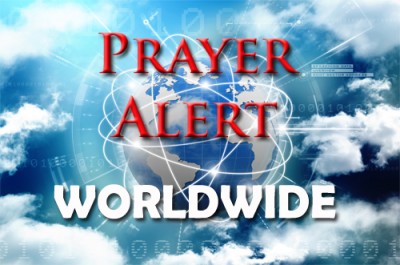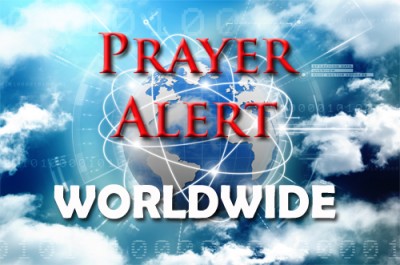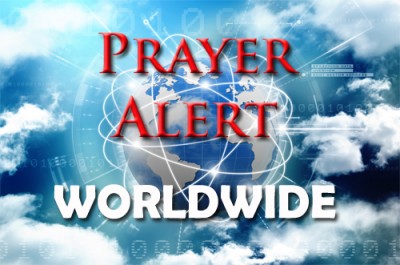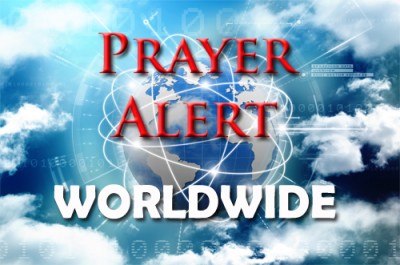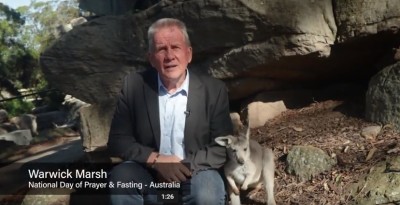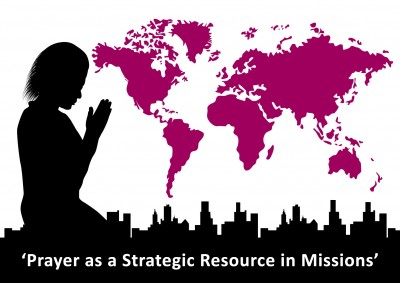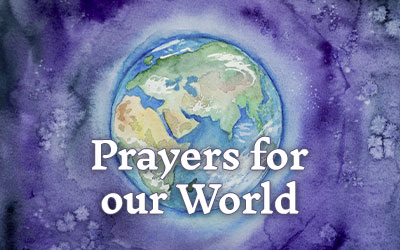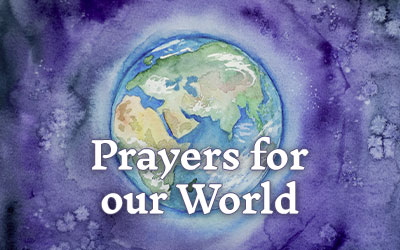Global: Cambridge Analytica
30 Mar 2018Recent revelations about Cambridge Analytica (CA) tactics to influence elections using data from Facebook accounts and its role in UK and US election votes are the tip of an iceberg. CA has been linked to elections in Czech Republic, India, Italy, Kenya, Mexico, Malaysia, Nigeria, and Ukraine. This is a truly worldwide phenomenon. New technologies can be a double-edged sword. Social media has transformed how the public call out the corrupt and demand change. But what happens when the data these tools generate about their users is used as part of a murky process to influence elections? Is this corruption? The now-suspended CEO of CA has said that some emails between the company and its clients automatically self-destruct, leaving no electronic paper trail for investigators looking for election fraud allegations. Also identities of companies working on elections were hidden, presumably through shell companies. ‘No one even knew they were there,’ said another CA executive of an operation in Eastern Europe. See also
Global: Putin finally goes too far
30 Mar 2018When Britain expelled 23 Russian diplomats in response to a Russian assassination attempt on UK soil, Vladimir Putin shrugged it off, no doubt believing the cost was predictable and bearable. Then 27 countries, including the USA, joined a coordinated expulsion campaign. Putin’s calculation has always been that the West is strong but lacks unity and the will to do anything when Russia bends and breaks international rules. The 120+ expulsions will deliver a serious blow to Russia’s intelligence networks, as those expelled are probably intelligence officers working under diplomatic cover. However, they represent only a fraction of Russia’s intelligence apparatus. For instance the Czech security service believes fifty Russians in the Prague embassy are actually spies. But, mindful that their tiny embassy in Moscow can only sustain a few retaliatory expulsions, the Czechs only expelled three Russians. Boris Johnson predicts Russia will retaliate against all countries in solidarity with the UK.
Cameroon: challenges for prayer
30 Mar 2018Mission networking in Cameroon is bearing fruit through evangelical cooperation to reach the unconverted. Please pray for three initiatives: 1) Christian Missionary Fellowship International has remarkable ministries in prayer, missions and publishing, all having a global impact. 2) Cameroon for Christ, launched in 1996, involves many denominations and churches in research and evangelism of the 2,400 villages of the north. 3) Mission BINAM targets the idol-worshippers of West Cameroon, especially the Bamiléké, and is very active in evangelism as it trains researchers for church and mission needs. Please pray also for the restless young people who are frustrated by high unemployment and cheating, bribery and favouritism in the education system. Many turn to crime and prostitution, and violent demonstrations are occurring. Cameroon has never before dealt with such disruptions. Also Christians in the north are under increasing pressure from Muslims.
Syria: Turkish action in Afrin
30 Mar 2018Turkey’s flag flew over Afrin while Turkish-led factions, including Salafi jihadi groups, were plundering the city. Images emerging from Afrin resembled a medieval army taking booty. Experts, observers and international anti-IS coalition officials expected Syrian Kurdish fighters to put up a stronger resistance to protect the land, believing Turkey’s victory would come at a greater cost. Since these fighters handed over Afrin without engaging in urban warfare, most people believe the Turkish intervention is a prelude to a wider offensive against other cities under the control of the Kurdish forces. On 20 March Erdogan vowed to expand Turkey's Syria campaign to the Kurdish-held areas up to the Iraqi border. But Syria’s government heavily criticised Turkey's ‘occupation’ of Afrin and demanded that Turkish forces withdraw.
30 April – 3 May 2018
For the sixth year in a row, Australia is calling the nations of the world to join with them to pray and fast for four days for the United States of America, from 30 April – 3 May 2018.
May 3 is America’s National Day of Prayer. The theme is “Pray for America - UNITY” Ephesians 4:3. http://www.nationaldayofprayer.org
April 30 is America’s National Day of Repentance. http://www.dayofrepentance1.org
Promo YouTube Video: https://www.youtube.com/watch?v=4B5nFcDBMOA
Facebook Video: https://www.facebook.com/CanberraDeclaration/videos/2081577435200931/UzpfSTM1MTc4OTk3NDg5NjY1MDoxNjg5NDAyMjExMTM1NDEz/
Commissioner James Condon, a member of the National Day of Prayer & Fasting team, said, “God has done remarkable things in America since we began to pray and fast, but God can do greater things yet! We in Australia believe it is our turn to stand in the gap for the nation of America and pray for revival and transformation for the USA through prayer and fasting according to 2 Chronicles 7:14. Whilst America has a new administration, the need for a new National Awakening has never been more apparent.
Commissioner Condon from Salvation Army continued, “We in Australia are grateful for the protection that America gave Australia and the nations of the free world during World War II. The Battle of the Coral Sea, fought by USA in 1942, was the turning point in the Second World War for Australia. America continues to be a blessing to the world. Even to this day the USA is the largest contributor of foreign aid among all the countries of the world. Thank God for America!”
President Reagan renewed the call for a National Day of Prayer in 1982 and said, “National prayer is deeply rooted in our American heritage… The first National Day of Prayer was proclaimed in 1775 by the Second Continental Congress. As thousands gathered in prayer in places of worship and encampments throughout the new land, the dispersed colonists found a new spirit of UNITY and resolve in this remarkable expression of public faith.”
Sue Tinworth, a member of the National Day of Prayer and Fasting team, talking about the history of prayer in the USA said, “President Abraham Lincoln, on 30 April 1863 called for a Day of ‘Humiliation, Prayer and Fasting’ at a time of great national crisis by Governmental decree which said, “We have grown in numbers, wealth and power, as no other nation has ever grown. But we have forgotten God… It behooves us then, to humble ourselves… to confess our national sins, and to pray for clemency and forgiveness”. Unfortunately, today America is again in a dangerous predicament because it has forgotten God. Sadly the situation in Australia is very similar. We in our nation have forgotten God and we are in danger of paying the price for our sin.”
Ps Warwick Marsh, also from the National Day of Prayer and Fasting team said, “We are thankful for America’s strong Christian heritage, but this will not save America, only the blood of Christ can. America and Australia need revival and reformation, as does the whole world. We all need more of God. We invite you and the nations of the world to join with us in four days of prayer and fasting for the USA.”
National Day of Prayer & Fasting. www.nationaldayofprayer.org.au
Facebook: https://www.facebook.com/nationaldayofprayerandfasting
By John D Robb
1. God desires and requires intercessory prayer for the accomplishment of His salvific purpose for the peoples of the earth.
Jesus told us to pray, "Thy will be done on earth as it is done in Heaven." Abraham interceded for Lot in Sodom, Moses prayed that God would turn from His wrath against Israel, Daniel for the return of Israel from Babylon. Ezekiel was told by God, "I looked for a man among them who would build up the wall and stand before me in the gap on behalf of the land so I would not have to destroy it but I found none" (Ez. 22:30}
Why does God desire and require His people's intercession? Most likely because God originally gave dominion of the earth to humankind. That dominion has never been revoked by God. Satan's dominion achieved through rebellion against the Creator is a false, illegitimate, usurped dominion. Redeemed through Christ, we can exercise our God-given right to influence the affairs of this world through the exercise of intercessory prayer. Like Kuwait's request for the multi-national force to come against the illegitimate dominion of Iraq, so we in prayer as God's redeemed children, pray that His will be done, His kingdom come on earth. Prayer in the power of the Holy Spirit breaks through the false dominion of the enemy, and clears the way for His deliverance and shalom to come to all peoples. Linked through prayer with the risen Christ, sitting at His side (Eph. 2) far above all authority and dominion, we share in the accomplishment of His redemptive purposes.
Dick Eastman, president of World Literature Crusade, recently shared with our staff at World Vision how early in 1988, God had led him to take a team of intercessors throughout Eastern Europe. Their mission was "to confront the strongholds of Communism." In obedience to God's leading, they carried out a "prayer walk" around the Politbureau building in Bucharest where less than two years later, Ceaucescu made his last stand after pridefully announcing his regime would last for a thousand years. While in Berlin, God led Dick to go out with a German friend in the middle of the night to face that still forbidding wall. Moved in intercessory prayer, they both laid their hands on the wall and prayed, "In the name of Jesus, come down!"
In the dramatic events of the last year in Eastern Europe God has used the prayers of His people to shake the nations. He can do the same thing in the unevangelized world. He is seeking those who will stand before him in the gap for the 2,000 major unreached peoples, the 1,000 unevangelized cities, and the 30 unevangelized countries.
2. Victory in the spiritual realm is primary, and it is won by prayer.
Remember Moses' intercession as he held up his hands before God while Joshua and the army of Israel fought the Amalekites in the valley below? Each time Moses' arms grew tired and faltered, Israel's army was pushed back. But as he sustained his stance in prayer with uplifted arms, the Israelites were victorious.
Later in Israel's history. King Jehoshaphat relied on the weapons of united fasting and prayer, public worship and praise which brought God's intervention against the invading armies of Israel's enemies. Bible teacher, Derek Prince, writes: "These weapons, scripturally employed by Christians today, will gain victories as powerful and dramatic as they gained for the people of Judah in the days of Jehoshaphat.... Victory in the spiritual realm is primary. It is to be obtained by spiritual weapons. Thereafter its outcome will be manifested in every area of the natural and material realm."
These two Biblical episodes vividly portray intercessory prayer as being the winning factor. Why should this be any different in today's battle for world evangelization?
3. Prayer has always undergirded and extended the missionary outreach of the church.
Prayer is mentioned over 30 times in the Book of Acts alone, and generally it is mentioned as occurring just before major breakthroughs in the outward expansion of the early Christian movement. For the Apostles extended times of united prayer and waiting on God together were pivotal in their mission to the unreached. Before the first great outpouring of the Spirit at Pentecost and Peter's mighty sermon that brought 3,000 into the church, it is recorded that the Apostles "all joined together constantly in prayer" (Acts 1:14). Then, as the Apostles and their new converts "devoted themselves to prayer," signs and wonders occurred, the city was filled with awe, and people were added to the church daily (2:42-44). It was "after they had prayed" that the place where they were meeting was shaken, all were filled with the Holy Spirit, and spoke the word of God with boldness (4:31).
The Apostles early on let it be known what their priority in mission was- "We will devote ourselves to prayer and the ministry of the Word" (6:4). The result of the Apostles determined adherence to this priority was that "The word of God spread and the number of disciples increased rapidly, and a large number of the priests became obedient to the faith" (6:7).
Peter's prayer resulted in signs and wonders such as the raising of Tabitha. Later it was a time of prayer that opened his eyes to the revelation that the gospel was also for the Gentiles, making him willing to go and preach to Cornelius. It was also the church's prayer that brought the release of Peter from prison.
A period of prayer and fasting by five leaders of the Antioch church led to the setting apart of Paul and Barnabus for their frontier mission to the Gentiles. Afterwards they were sent out with more fasting and prayer (13:1-3). It was through prayer that Paul was not allowed by the Spirit of Jesus to enter Bithynia, but redirected into Macedonia. And it was through the prayer and praise of God by the imprisoned Paul and Silas that an earthquake helped to originate the church at Philippi!
The whole European side of the modern Protestant missionary enterprise grew out of Pietism, a revival movement that was steeped in earnest prayer. From its influence the Danish-Halle Mission to India went forth and the Moravian movement under Count Zinzendorf emerged. One author writing about the Moravians said that "the glorious movement of the Spirit... among the Moravians at Herrnhut in 1727 [which] transformed them into what has been the mightiest evangelizing force in the world for the past two centuries, was borne in prayer."
The prayer meeting which the Moravians began in 1727 went on 100 years! By relays they offered unceasing prayer for the church and needs all around the world. This prayer effort kindled their desire to proclaim Christ to the unreached and led to the beginning of modem missions. And from this one small village, over 100 missionaries went out in 25 years.
Decades later, William Carey, while still employed as a humble shoe repairman to support his part-time preaching, drew a homemade map of the world, entering all information he could find about its regions and countries. As he mused over the world's appalling needs and problems, he turned the information gathered into heartfelt intercession. His biographer reveals: "Often in the silence of the night... by the dim rush light, he would scan that map and then kneeling before it, pour out his soul to God." Prayer for the world was a definite motive force in the call and service of the one who came to be known as "the father of modern Protestant missions."
In 1806, a few college students from William's College took refuge from a sudden rainstorm beneath a haystack. Sitting in the midst of hay, they used the time to pray for the world and its needs. Out of that unlikely venue for a prayer meeting, the American mission movement was born.
Robert Glover sums up the role of prayer in the history of missions:
"From Pentecost and the Apostle Paul, right down through the centuries to the present day, the story of missions has been the story of answered prayer. Every fresh outbreak of missionary energy has been the result of believing prayer. Every new missionary undertaking that has been owned and blessed of God has been the germinating of seed planted by the divine spirit in the hearts of praying saints."
John Robb, IPC Chairman
(Excerpted and adapted from the article by John Robb “Prayer as a Strategic Weapon in Frontier Mission” Published in the International Journal of Frontier Missiology in 1991)
Evangelical Call to Prayer for Peace on the Korean Peninsula March27, 2018
As American Christians with diverse approaches to force and nonviolence and yet all committed to pursuing peaceful relations among people and nations, we unite in prayer for permanent peace on the Korean Peninsula. We do this mindful of the millions of lives, including more than 230,000 Americans, that would be threatened by an escalation of conflict there.
We are heartened by proposals for dialogue between our national leaders at a time when increasing tensions seemed to be marching our countries perilously in the direction of greater conflict, if not war. We call on all Christians everywhere to join us in praying for a just and peaceful resolution.
We pray for wisdom for our political, diplomatic and military leaders as they work across differences toward a goal of peace, security and freedom. We pray that God will bless the efforts of citizens who seek to bridge the vast differences between our countries.
Decades of people-to-people contact between North Korea and the United States- through business, educational and other humanitarian exchanges - have put a human face on those who are sometimes characterized by one another as enemies. So, we pray with empathy and in a spirit of friendship, noting the image of God in every human being. However profound the differences between our governments, we do not view the North Korean people as our enemies. On the contrary, we desire only the best for the people of North Korea.
Most of the nearly two million Korean-Americans are Christians, and many belong to evangelical churches. This community too has contact with North Koreans through humanitarian and family ties. South Korea is also home to many evangelical churches, including some of the world’slargest. Many of these Korean brothers and sisters have been praying for North Korea for years and we humbly join them. These connections with Koreans in North Korea, South Korea and the United States strengthen our resolve to seek God for mercy and, so far as it depends on us, to pursue peace between our respective countries.
Sincerely,
Leith Anderson – President -National Association of Evangelicals
HyepinIm
President/CEO & Founder
Faith and Community Empowerment
Dr. John P Hartley Chair
Evangelicals for Peace
Rev. Johnnie Moore Founder
The Kairos Company
Nikki Toyama-Szeto Executive Director Evangelicals for Social Action
More info at:http://www.evangelicalsforpeace.org/northkorea
PRAY: Let us continue to pray that the expected upcoming meeting between President Trump with Kim Jong Un will be used of the Lord to end the conflict, denuclearize the Korean peninsula and even to make possible the reunification of the two Koreas.
(Image:Route of AI139 passenger flight from New Delhi to Tel Aviv 22 March 2018)
From the evening of her re-birth 70 years ago, Israel, has been always keenly aware and wary of the vast desert kingdom spreading southeastward from her western neighbor Jordan.
Six months previous, Saudi Arabia had cast their vote against the UN Partition Plan paving the way for the birth of the Jewish State. Now, hours after Israel’s Declaration of Independence, as five Arab armies began their invasion to stamp out the new state, allied under the Egyptian army was a mass of soldiers sent from the Arabian Peninsula.
Twenty-five years later, the Saudis would again send troops to support Egypt in the 1973 War. Afterwards, although there have been no further military overtures, Saudi Arabia has continued to be seen as an enemy nation, one with a hatred for Israel and Jews (By law, no Jew is allowed to live in the Kingdom). They have never opened diplomatic relations with Israel. It was with uneasiness that Israel witnessed in 2010 the US sale of $60 billion worth of F-15 fighters, attack helicopters and advanced munitions to this unfriendly nation, some of whose borders lie only minutes by air from our capital.
For 70 years no Israeli passenger planes have been allowed over Saudi airspace (When, some years ago, the authors travelled to Thailand, our plane was forced to fly southwards along the Arava through the Gulf of Aqaba, then down the length of the Red Sea—with enemy state Sudan to the west, Saudi Arabia to the East— on southward to just before the Horn of Africa, where we finally made a sharp left turn eastwards out over the Arabian Sea towards India—
In recent years, there have been signs that this official stance of hostility may be, at some levels anyway, beginning cautiously to change. The Saudis came out with a “peace plan” related to the Israeli-Palestinian conflict. More recently, rumors began to surface of secret communications between the two countries. When the newly-elected President Trump made his maiden trip abroad last May, his first stop was to Saudi Arabia—from there his plane made one of the few flights ever allowed from Arabia to Israel.
With the remarkable reforms which appear to be attending the rise of Crown Prince Muhammad Bin Salman Al Saud, an unprecedented warming of relations with Israel has begun to be spoken of as a legitimate possibility (PM Netanyahu recently spoke of Israeli relations with the Arab world—obviously including Saudi Arabia—as “best ever.” As of this week, the flights from India over the Arabian peninsula will continue three times a week.
Then this past Thursday night, history was made. For the first time in Israel’s 70 year history, a passenger plane from another country was allowed to travel the length of the Arabian Peninsula (see map above) en-route to Tel Aviv. The Air India Boeing 787 from New Delhi touched down at Ben Gurion Airport at 10:15 p.m. Israeli Transport Minister Yisrael Katz described the occasion as “the first time that there is an official connection between the state of Israel and Saudi Arabia.” Of its enormous significance, one Israeli analyst observed that even in the absence of an Israeli-Palestinian peace treaty (considered for years a prerequisite for relations between Israel and the Arab world), “this shows you can have small gestures that are of real meaning.”
The most generally held explanation for this thaw in relations is that the Sunni Saudi government is eyeing the expansion of its Shi’ite arch-enemy Iran and its nearness to acquisition of nuclear weapons, and is therefore open to (at least temporarily) making an alliance with the Israelis, whom the Iranian Ayatolla’s have repeatedly vowed to annihilate. While not discounting this as a factor, we sense it is essential that we seek the Lord as to what He—Lord of the Nations—is doing. Of course there is war in the heavenlies, with evil powers and principalities over nations at war against the decrees of the Elyon—the Most High—on behalf of His redemptive purposes on the earth.
We believe that through the present year a season of grace is being extended in which nations are being granted opportunity for making choices as related to their alignments with God’s purposes in His covenant land and people Israel. How they choose will significantly determine their pathway in the season ahead—whether for blessing and awakening or for darkness and great deception and delusion. During this year, there will be nations whose past histories would have indicated them to be last in embracing Israel, which will turn towards here—others with reputations as friendly will turn away.
During this window of opportunity, the determined efforts of intercessors, though small in number, may have great influence in swaying the stance of their leaders towards that which is good. It is remarkable that we see the leadership of Egypt, with whom Arabia allied strongly in both the 1948 and 1973 wars against Israel, slowly but steadily engaging in more friendly relations with her. We believe this is being surely facilitated through the prayers of millions of Christian believers and the many houses of prayer in that land who love and are praying fervently towards the fulfillment of the Isaiah 19 “Highway” which God says will connect “Egypt My people” with “Israel My inheritance.”
If God has such plans for Egypt, where His people suffered bondage for 400 years, might He not also have redemptive plans for the Arabian Peninsula, where it is appears that these same Children of Israel may have wandered for 40 years in the desert? (In fact, in the opinion of a growing number of Biblical scholars, many factors point towards the very Mountain where the LORD came down and spoke with Moses as lying, not in the “Sinai Peninsula,” but in that area of Midian on the “back side” (i.e. the Arabian side) of the Gulf of Aqaba).
Might not this area of the world in which the delusion of Islam arose—a delusion which holds vast throngs of people throughout the nations in a bondage not unlike that typified by Egypt before the Exodus—might not this area where His manifest presence once moved among His people Israel be one in which the God of Salvation longs to begin releasing freedom to captivities from evil—even from its very source? Perhaps this itself sounds delusional. But God, whose greatness will dwell in Jerusalem, is beginning to shake things—“Let the peoples tremble…let the earth shake, YHWH is great in Zion, He is exalted above ALL peoples…They SHALL praise Your great and awesome name: Holy is He!” (Psalm 99:1-3). This includes those in captivity to darkness in Saudi Arabia!
Some of the Body of Messiah in Israel is using the shifts we sense occurring to stir us to pray for His life and blessing to spread over this great enemy from our past. After all, a part of our call, from the beginning, has been that through the seed of Abraham, every family and nation will find blessing! (Genesis 12:3; 22:18).
Will you join with us!
PLEASE PRAY:
* That the Spirit which is drawing a new generation in Saudi Arabia towards regarding Israel with favor, will increase - that the leaders there would respond positively to this Spirit.
* That the “true Light which, coming into the world, enlightens every human being” (John 1:9), will illumine hearts of Muslims throughout the Arabian Peninsula to the truth that Issa-Yasuah-Yeshua-Jesus who was born in Bethlehem is the divine Son of God and saviour of the World (We personally have heard testimonies of former Muslims who were illumined by this Light while on the Haj in Mecca itself!).
* For Crown Prince Muhammad Bin Salman Al Saud, that He will be protected in mind and body; that the Power which has already been at work in him towards releasing freedoms towards women, and other areas of his society which have for centuries lain in unjust bondage and oppression, that this Power will reveal itself in a personal way.
* For Israel’s leaders, to regard the initiatives in Saudi Arabia with wisdom, discernment and grace. That God will work His alliances between the two countries out in His way and timing.
* That the grace and favor which is presently linking India and Israel will be released over the Arabian peninsula over which their flights are now free to take place!
“In world first, Air India crosses Saudi airspace to Israel”: AFP (Reprinted in The Times of Israel: 22 March 2018).
Martin & Norma Sarvis
Jerusalem
